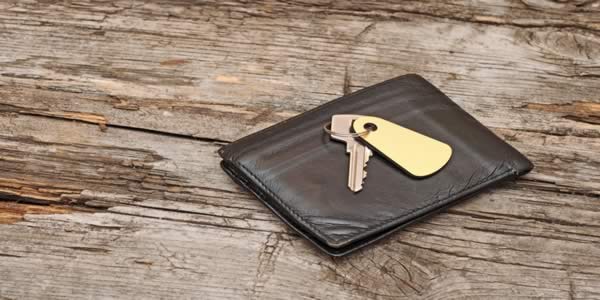As attorneys in Charleston, South Carolina, we write many articles about the law concerning personal injury claims, criminal defense, family court, and so many other legal topics. However, it occurs to us that sometimes we may overlook the “basics.” One of these basics is how to prepare yourself to walk into civil court, criminal court, or family court. For most persons, the court can be an intimidating experience with or without a lawyer by your side. This article will give some general pointers if you find yourself appearing in any court in South Carolina.
What to Do Before You Go to Court in South Carolina
Try to get a good night’s rest before you go to court. Plus, most courts do not allow food or drink, but they do have water fountains. Don’t go on an empty stomach! When you are tired, hungry, or thirsty, you aren’t at your best!
How to Dress for Court in South Carolina
You must dress properly and conservatively for each court hearing. The judge hearing your case will associate your attire with the level of respect you are giving to the court.
Women should wear dresses which are knee-length or longer or tailored slacks and a blouse. Men should wear tailored slacks and a shirt with a collar. Clothing should be clean. Some examples of clothing that are not allowed include baseball caps, sleeveless tops, halter tops, backless dresses, low cuts dresses, mini-skirts, shorts, blue jeans, t-shirts, flip-flops, and sandals. Tuck in your shirt. We often tell clients to dress “business casual” or to “dress like you are going to church.” Failure to dress appropriately could result in your case being continued or you being excluded from the courtroom during the case.
If going before a jury, consider the type of case. If it is a business dispute, a suit may be appropriate. On the other hand, in a personal injury case, a fancy suit and jewelry could give the message that you really don’t need what you are asking for.
We recommend removing any piercings other than one pair of earrings for women, covering any tattoos if possible, and having a conservative hairstyle and color. Even if you feel these things represent a particular belief or who you are, remember that you are presenting in front of strangers who may be deciding your fate, so a middle-of-the-road appearance will minimize the chance of offending any of the extremes or jeopardizing your credibility. While most people don’t like being “judged,” that is exactly what going to court is all about.
What to Bring & Not to Bring to Court in South Carolina
Bring your entire file, which includes every document, CD-ROM, or thumb drive that relates to your case. You never know what could happen, and it is best to be prepared. Even if you have a lawyer, it is possible that some portion of your lawyer’s file accidentally stayed on his or her desk at the office, and you can actually save the day by having a copy of some document handy.
In some counties, such as Dorchester County Family Court, you aren’t allowed to bring your cell phone, so it is best to just leave it in your car if you’re unsure. If you’re allowed to have your phone, such as in Charleston County, turn if off or put it on silent! If your cell phone goes off in the courtroom, the judge can take your phone and can possibly hold you in contempt (put you in jail). In fact, one Charleston County judge made the local headlines by putting a participant in a holding cell because her phone rang during court. At a minimum, the judge may take a ringing cell phone as a sign of disrespect.
For security reasons, you can’t bring in any knives, scissors, nail files, or other sharp objects.
You can bring a friend or family for moral support if it would make you more comfortable. Although this person will not be able to sit at the table with you, he or she will at least be there in the courtroom to talk to you before and after.
Arrive Early to Court
The court won’t wait on you if you’re late. We had one client who before hiring us went to court by himself. He was thirty minutes late for the hearing, and the hearing went forward in his absence. Needless to say, the hearing did not go the way he wanted it to. Talk to court staff upon arrival to make sure you are in the right place and waiting outside of the right courtroom.
Another advantage of arriving early is that you are able to sit down, relax, and gather your thoughts as you wait on your hearing. You are more likely to present well in court if you walk inside in a relaxed state than if you are running down the hallway trying to make your hearing on time.
How to Behave in and Around the Courthouse
You may find yourself waiting in a hallway outside of the courtroom. Be aware that people around you could be lawyers, witnesses, or jurors involved in your case. Don’t talk about your case because you never know who might overhear you. Also, don’t “cut-up” or joke around (as many nervous people will do) as it could give a juror a bad impression of you. Remember that some jurors are very inconvenienced by their jury duty. You don’t want to give any jurors the impression that going to court is fun for you. Don’t look like you are having fun.
If you smoke cigarettes, don’t smoke in open areas where you could be seen by a potential juror.
Even when parking your car, be polite and let other cars in front of you. Don’t cut people off or exhibit frustration towards other drivers. You never know when a judge or juror is in the other car.
If you find yourself waiting inside of the courtroom, just sit there, watch, and be silent. Judges may take whispering to your neighbor, sleeping, or certain other acts as a sign of disrespect. Your sincerity, or lack thereof, will be noticed. If the judge isn’t telling a joke or laughing at a joke from one of the lawyers, you shouldn’t be laughing either. When your case is up, meaning you and your lawyer are addressing the court, continue to maintain a sincere demeanor at the table even if you do not like what others are saying. We have seen people scolded by judges on numerous occasions for making facial expressions, talking, or shaking their head, in protest of what a lawyer or witness is saying about their case. If you must speak, do it through your lawyer. We bring pads of paper to court to allow for our clients to communicate with us without talking. Showing respect is of utmost importance. If you don’t have a lawyer, be very careful of how you make any objections and be sure to not be disruptive to the proceedings.
How to Speak to the Judge
Be humble, respectful, and polite. Address the judge as “Your Honor,” “Sir,” or “Ma’am.” Address parties, witnesses, and lawyers as “Mr.” or “Ms.” We can’t emphasize enough – show absolute respect, and it will likely be returned. Don’t speak unless the judge asks you to. Stand up when you speak to the judge unless he or she tells you that you can keep your seat. If the judge cuts you off, let it happen. We’ve seen numerous instances of people attempting to “talk over” judges, and it doesn’t usually go well for that person. We’ve also seen people penalized by the judge for being too argumentative.
Here is one BIG pet peeve of many judges – not answering the question asked. If the question calls for a “yes” or “no” answer, don’t beat around the bush. Answer yes or no. If you feel that your answer needs some explanation, first answer the question and then explain it.
Meet with a Charleston Attorney Before Going to Court
We’ve had clients come to us on numerous occasions because they went to court alone and were unhappy with the outcome. Sometimes, there’s little we can do AFTER the damage has been dealt in court even if we may have been able to obtain a different outcome had we been there from the start. The procedural rules of court are complex, and people can ruin their cases by not following them. The evidentiary rules are equally complex, and there may be important facts that you are unable to present because you did not follow the rules of evidence. Finally, the law is complex, and you may be unaware of laws in your favor or ones that may harm you. Even if believe you have researched the law appropriately, you may not be able to articulate it correctly to the court. You don’t always have to hire a lawyer, but there is no harm in at least consulting with one before you enter the courthouse.












